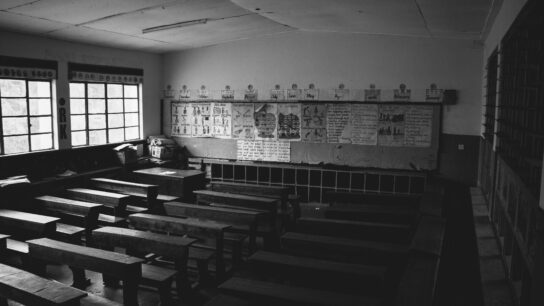The Tide has Changed
Contrary to popular belief, teachers do advocate for strong evaluation and accountability policies. Yes, this is contrary to the public opinion that has surfaced recently. While for decades teachers have been thought of as dedicated educators of children who despite the high cost of their own education, chose to become school teachers, generally at much lower salaries than that of their private sector business counterparts. Unfortunately, that tide has changed. Today’s public opinion seems to have taken on a much more negative edge. Many people I have personally spoken with have said that teachers’ salaries are too high for the amount of time spent in the classroom. Many others say that the teacher’s benefit packages are far more elaborate than that of the private sector. Therefore, many folks have no problem with their local school boards adopting teacher evaluation systems that require accountability levels that are all but impossible meet.
As a result of the oft times unattainable accountability standards, teachers have become skeptical of any new proposals and have began to be more combative in the collective bargaining process. This is a terrible trend to be setting and it needs to stop. However, this can only begin to turn around when our national leadership steps up with some real education reform ideas. Ideas like those we have been discussing over the past several weeks. Public opinion will indeed be difficult to sway and must be tackled from both top to bottom and from bottom to top. Teachers at the local level must continue doing the very best they can even though it is becoming more difficult with today’s challenges. Likewise, federal and state leaders must begin immediately to develop the new collaborative Departments of Education.
Teachers are no different now than they’ve always been dedicated, caring, and selfless advocates for children. Albeit, they have grown a little harder skin as they have adapted to a more negative view of their profession by John Q. Public. But because of their very nature as true teachers, it should not be too difficult to bring them back onboard as long as the discourse is fair and is of benefit to all stakeholders.
It is this discourse that I would like to spend some time on in this week’s installment because; after all without educators there can be no education. So we explore yet another important thread in our quest to weave a more perfect blanket. As I said from the onset, teachers want and need strong evaluation and accountability policies. However, the evaluation tool must be used to improve their teaching ability and be the foundation of a fair and ongoing professional development process. Teachers want to learn as well as teach, this is what they do. So why shouldn’t school districts want to make the very best teachers they can out of the teachers that have already proven their dedication to their particular school and its students.
If there is any chance of this system really working there must first be a change of attitude among school administrators. Any new evaluation/accountability process can not be looked at as a “gotcha” tool rather it needs to be a “Helpya” tool. While the teaching profession is not for everyone and some find out after they began working in the classroom, the vast majority of teachers want to improve. Let’s face it, a good teacher’s day can be fun and rewarding and who wouldn’t want to go to work everyday under those circumstances? It’s ok that teachers may have an arterial motive to want to be the best teacher they can be, it not only produces better students, it also makes their day go much better.
Teachers that have been around for a while have seen their share of new and improved curriculum, standardized testing and evaluation tools, they are well aware that each new administration brings with it new ideas. They have become used to shifting gears, going in different directions and learning new processes. So change is something they are all quite good at but often disagree with. But the good news is that teachers are becoming more aware of what students really need to succeed. Teachers are yearning to bring the world outside into to their own small classrooms. They know that today’s students at all levels learn better when the curriculum is tied to real world experiences. Students today are more “hands on” learners and want to know how what they are learning will be applied to their lives after school.
I think most teachers would agree that the types of change we have been discussing over the past several weeks is something they are willing to grab on to. They see the benefits to collaboration with local business, community programs and most importantly each other. By working together to develop a more living breathing curriculum that will itself change with new innovation as it is developed, will be the inspiration the teachers need. Teachers can be re-energized by change but, it has to be real and not just for the sake of change.






